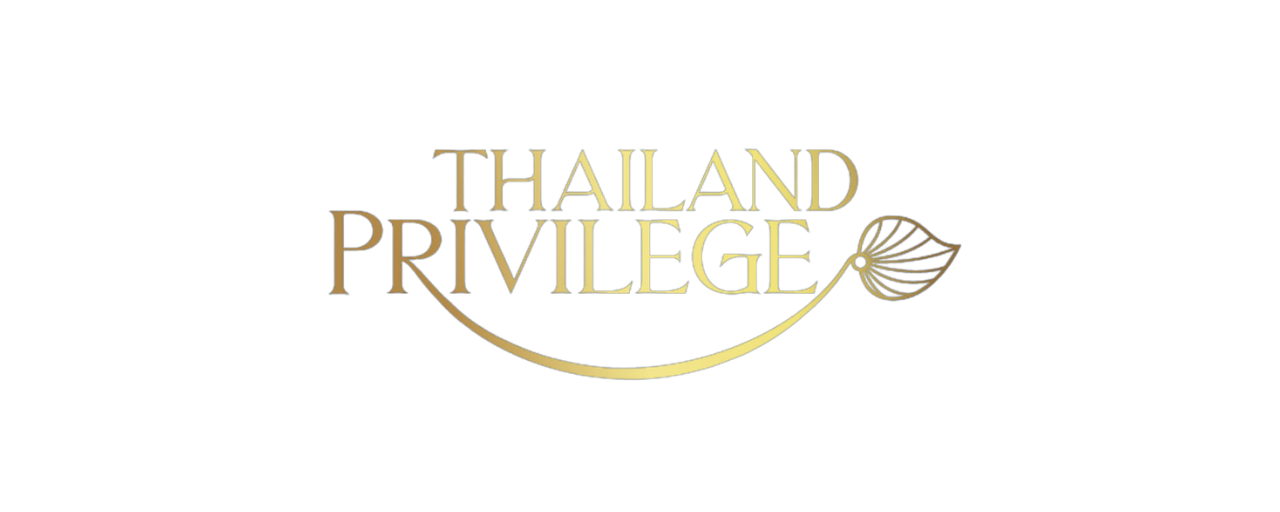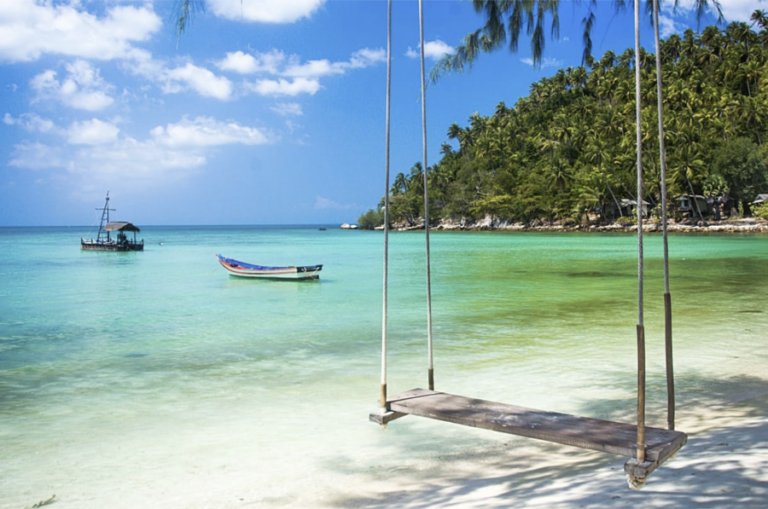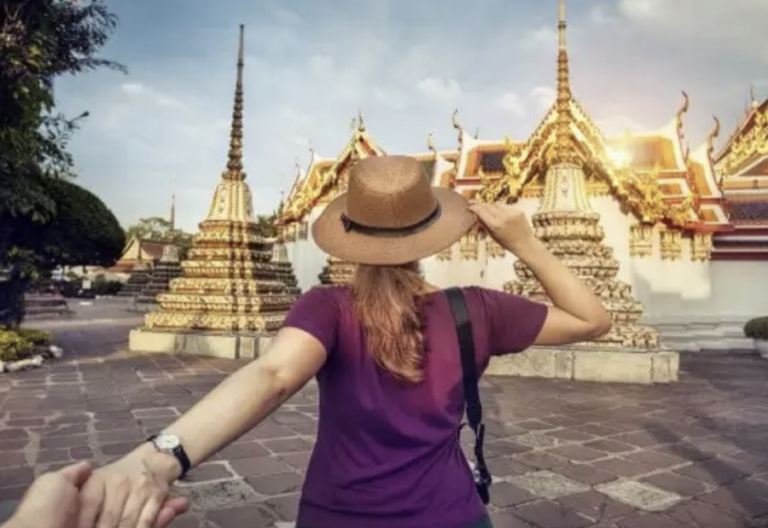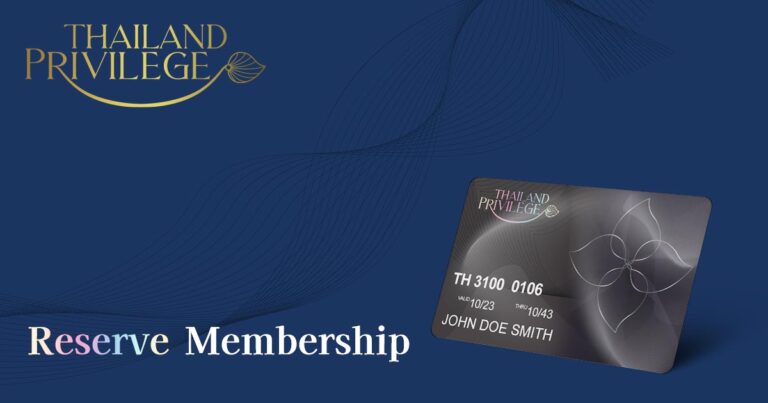Thailand: A Paradise Awaits – Essential Tips for Your Move
Welcome to 'Thailand: A Paradise Awaits – Essential Tips for Your Move.'
In this informative guide, we will provide you with essential tips and insights to ensure a smooth transition to Thailand. From the cost of living and job opportunities to visa requirements and healthcare, we will cover all aspects of life in this vibrant country.
Discover the rich culture, breathtaking landscapes, diverse wildlife, and warm hospitality that make Thailand an attractive destination for individuals seeking a comfortable and fulfilling life.
Key Takeaways
- Thailand has a relatively low cost of living compared to many Western countries, making it an affordable place to live.
- Bangkok, as a pivotal financial hub with multinational corporations, offers diverse job opportunities in commerce, culture, and urban life.
- Visitors to Thailand typically require a visa, depending on their nationality and length of stay, so it is important to apply for the right visa before entering the country.
- Thailand offers a two-tier healthcare system with public and private healthcare options, and it is strongly recommended to have comprehensive health insurance.
Cost of Living and Affordability
One of the key factors to consider when moving to Thailand is the affordability of living expenses. Thailand has a relatively low cost of living compared to many Western countries, making it an attractive destination for expatriates and retirees.
Basic necessities like food and transportation are affordable, allowing for a comfortable daily life. Local street food is not only delicious but also budget-friendly. Transportation costs, such as taxis and public buses, are reasonable, making it easy to get around the country.
Healthcare expenses in Thailand are generally more affordable than in other countries, with both public and private options available.
Economy and Job Opportunities
With Thailand's thriving economy in Southeast Asia, there are diverse job opportunities available for professionals and residents alike. Here are four key points to consider:
- Bangkok as a pivotal financial hub: The capital city is home to multinational corporations and offers a wide range of job opportunities in finance, banking, and business.
- Commerce, culture, and urban life: Thailand's economic vitality extends beyond the financial sector. The country offers opportunities in industries such as tourism, hospitality, healthcare, technology, and education.
- Economic vitality contributing to quality of life: Thailand's strong economy translates into a higher standard of living for its residents. The country boasts modern infrastructure, affordable housing options, and a vibrant social scene.
- Alluring canvas for residents and professionals: Thailand's unique blend of traditional culture and modern development makes it an attractive destination for individuals seeking both professional growth and a fulfilling lifestyle.
Whether you're looking for a career change or exploring new opportunities, Thailand offers a promising landscape for job seekers.
Visa Requirements and Immigration
Visitors to Thailand typically require a visa, depending on their nationality and length of stay. Tourist visas are usually valid for 30 days and can be extended for an additional 30 days.
Non-immigrant visas are required for long-term stays, such as work or study purposes. It is important to apply for a visa before entering Thailand to ensure a smooth transition.
The visa application process can be done at Thai embassies or consulates in your home country. Different types of visas are available based on the purpose of your visit.
It is essential to comply with visa regulations to avoid any legal issues. Seeking assistance from organizations like Shelter can help in obtaining the perfect visa for your needs.
Healthcare and Insurance
The availability of comprehensive health insurance is highly recommended for individuals relocating to Thailand. With a two-tier healthcare system consisting of public and private healthcare, it is important to be prepared for any medical expenses that may arise. Here are four key points to consider about healthcare and insurance in Thailand:
- Public healthcare: Thailand's government hospitals and clinics provide low-cost or free services to its citizens. However, language barriers may exist in public healthcare facilities outside major cities.
- Private healthcare: Expatriates and medical tourists often opt for private healthcare facilities, which cater to their specific needs and preferences.
- Language barriers: It is important to note that language barriers may exist in public healthcare facilities outside major cities, so having comprehensive health insurance can provide peace of mind and ensure that language is not a barrier to receiving quality healthcare.
- Comprehensive health insurance: Due to the potential language barriers and the varying quality of healthcare services, it is highly recommended to have comprehensive health insurance that covers both public and private healthcare options. This will help ensure access to quality healthcare and financial protection in case of any medical emergencies.
Language and Communication
Enhancing cultural immersion, learning Thai phrases can facilitate effective communication during your stay in Thailand. While Thai is the official language, English is widely spoken in urban centers, making communication comfortable and manageable for most foreigners. However, learning a few basic Thai phrases can enhance your experience and help you connect with the locals on a deeper level. To assist you in your language learning journey, here is a table showcasing some common Thai phrases:
| English | Thai | Pronunciation |
|---|---|---|
| Hello | สวัสดี | Sawatdee |
| Thank you | ขอบคุณ | Khob khun |
| How much? | เท่าไร | Tao rai |
| Where is…? | อยู่ที่ไหน | Yuu tee nai |
Culture and Traditions
Immerse yourself in the vibrant culture and traditions of Thailand by embracing the local customs and experiencing the diverse array of festivals that the country has to offer.
Thailand's culture is a rich blend shaped by Buddhism, Hinduism, and animism, resulting in vibrant expressions in art, architecture, music, and dance.
Here are four key aspects of Thai culture and traditions:
- Buddhism: Buddhism plays a significant role in Thai society, with temples and monks being an integral part of daily life.
- Thai Cuisine: Thai cuisine is renowned for its flavorful dishes, combining a balance of sweet, sour, spicy, and salty flavors.
- Traditional Arts: Traditional Thai dance and music are vibrant expressions of the culture, showcasing intricate movements and mesmerizing melodies.
- Festivals: Thailand celebrates a colorful array of festivals throughout the year, such as Songkran, the Thai New Year, and Loy Krathong, the Festival of Lights, offering unique cultural experiences.
Weather and Climate
Unquestionably, Thailand boasts a tropical climate with three distinct seasons: hot, cool, and rainy.
The hot season, from March to May, can be very hot and humid, with temperatures often reaching over 30 degrees Celsius. It is a time when locals and tourists flock to the beaches in search of relief from the sweltering heat.
The cool season, from November to February, offers more pleasant temperatures, ranging from 20 to 30 degrees Celsius. It is the perfect time for outdoor activities and exploring the country's natural beauty.
However, the rainy season, from June to October, brings occasional heavy rainfall, often in the form of tropical storms and typhoons. Coastal areas, like Phuket and Krabi, may experience monsoon seasons, so it's important to plan accordingly.
Landscape and Natural Beauty
Thailand offers a diverse range of landscapes and natural beauty, making it a paradise for nature enthusiasts. Here are some of the breathtaking features that await you in this tropical country:
- Serene beaches and picturesque islands for a tranquil escape.
- Majestic mountains and lush forests for nature enthusiasts.
- Natural wonders catering to every taste and preference.
- Diverse landscapes offering a remarkable experience.
From pristine beaches with crystal-clear waters to towering mountains covered in lush greenery, Thailand's landscape is truly mesmerizing. The country is renowned for its stunning islands, such as Phuket and Koh Phi Phi, where white sandy beaches and turquoise waters create a tropical paradise.
Inland, you can explore the majestic mountains of northern Thailand, like Doi Inthanon and Doi Suthep, which offer breathtaking views and opportunities for hiking and wildlife spotting. Thailand's national parks, such as Khao Yai and Erawan, showcase the country's natural beauty, with waterfalls, caves, and diverse flora and fauna.
Whether you're a sun-seeker, a mountain explorer, or a forest wanderer, Thailand's landscape has something for everyone to enjoy.
Frequently Asked Questions
What Are the Popular Job Sectors in Thailand for Expatriates?
Popular job sectors for expatriates in Thailand include finance, IT, tourism, hospitality, teaching, and healthcare. Thailand's thriving economy, particularly in Bangkok, offers diverse opportunities in commerce, culture, and urban life.
Are There Any Restrictions on the Types of Jobs Foreigners Can Do in Thailand?
Foreigners in Thailand may face restrictions on the types of jobs they can do. Certain professions, such as legal services and healthcare, require specific qualifications or licenses. It is important for foreigners to research and comply with the country's regulations regarding employment.
How Long Does the Visa Application Process Typically Take?
The visa application process in Thailand can vary depending on the type of visa and individual circumstances. It typically takes several weeks to process, but it is recommended to apply well in advance to allow for any potential delays.
What Are the Requirements for Obtaining a Work Permit in Thailand?
In order to obtain a work permit in Thailand, individuals must meet certain requirements, including having a valid non-immigrant visa, a job offer from a Thai employer, and the necessary qualifications and skills for the intended job position.
Are There Any Specific Cultural Customs or Etiquette That Expatriates Should Be Aware of When Living in Thailand?
Expatriates living in Thailand should be aware of cultural customs and etiquette. Respect for elders is important, and it is customary to remove shoes when entering someone's home. Modesty in dress and avoiding public displays of affection are also recommended.
Conclusion
In conclusion, Thailand offers a wealth of opportunities for individuals looking to make a move to this beautiful country. From its affordable cost of living and diverse job opportunities to its rich cultural traditions and breathtaking landscapes, Thailand truly is a paradise awaiting exploration.
By understanding the visa requirements, healthcare system, language and communication, and safety considerations, individuals can ensure a smooth transition and a safe and enjoyable experience in Thailand.
So pack your bags and get ready for an adventure in this remarkable destination.







